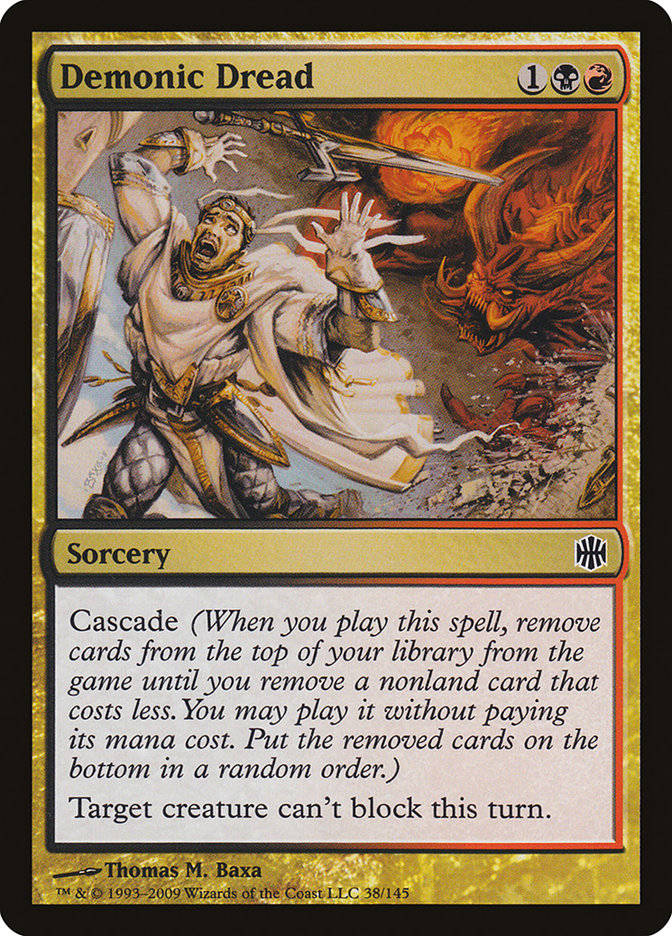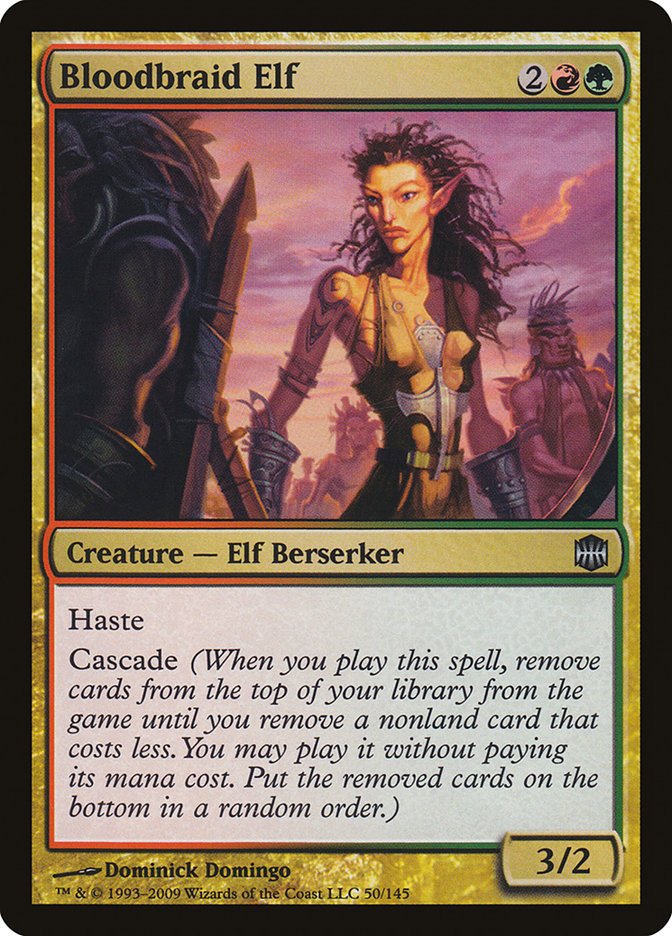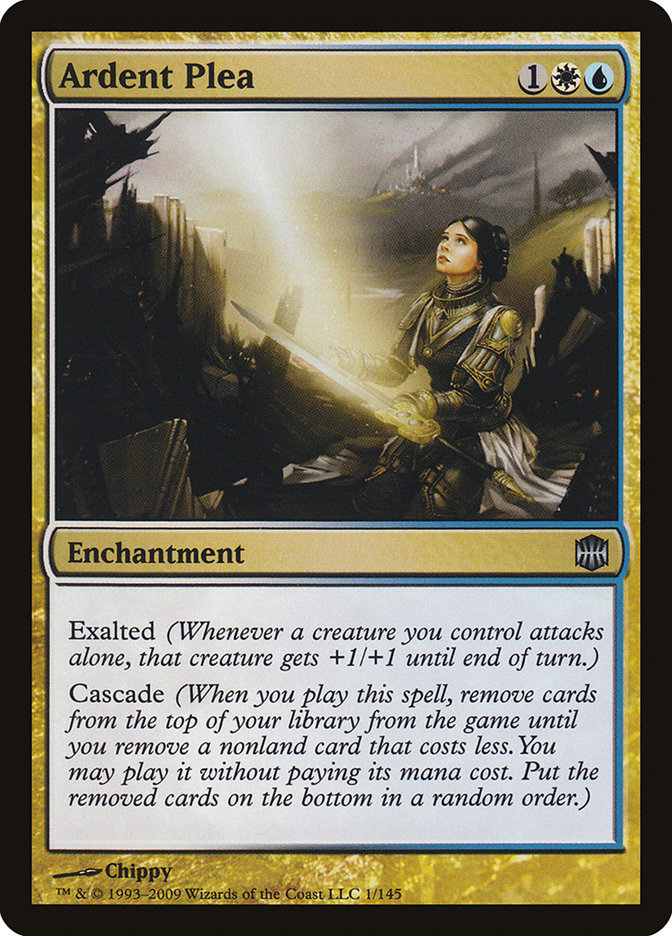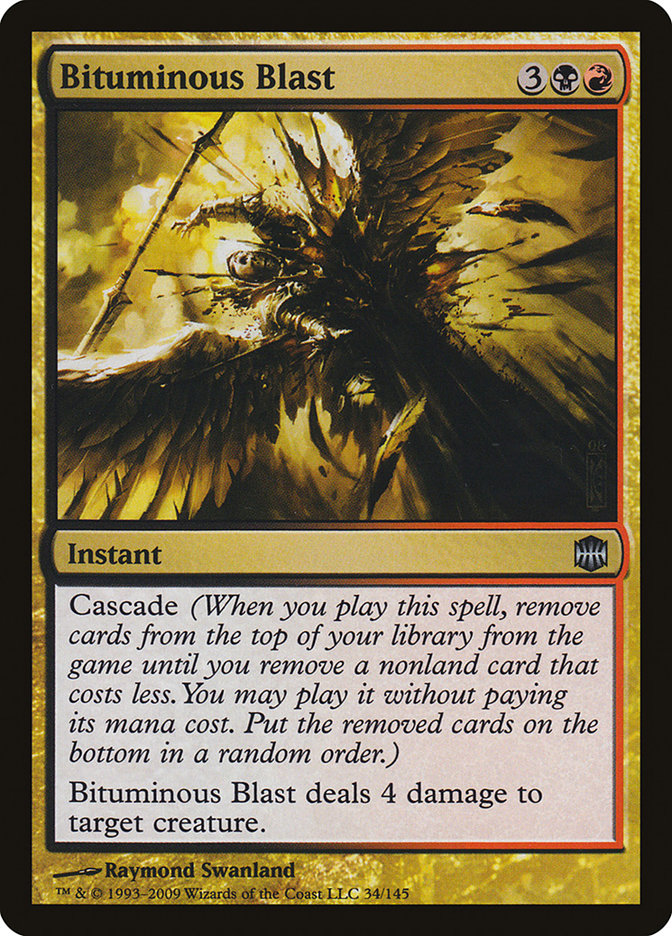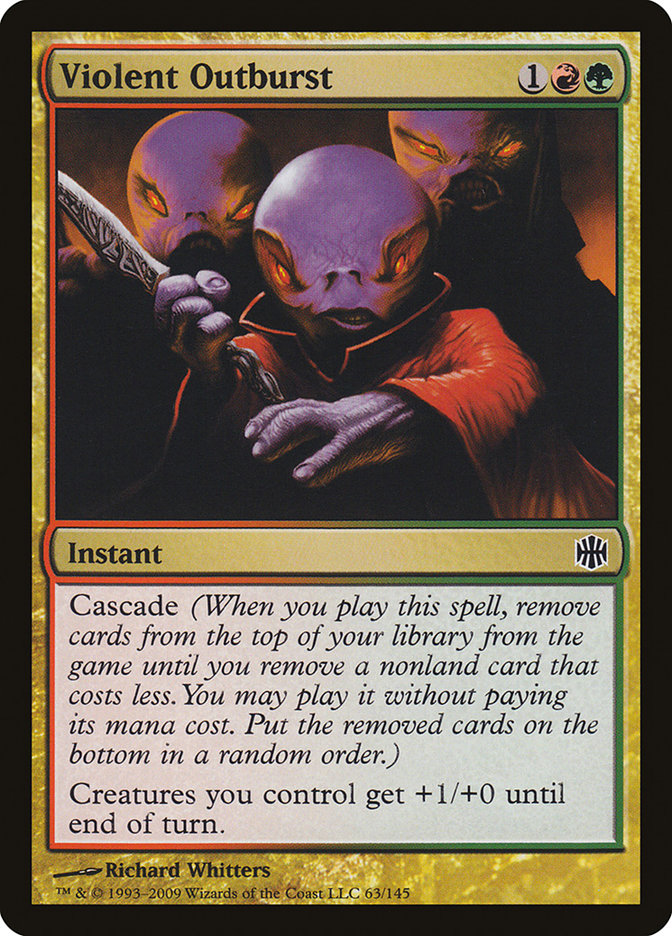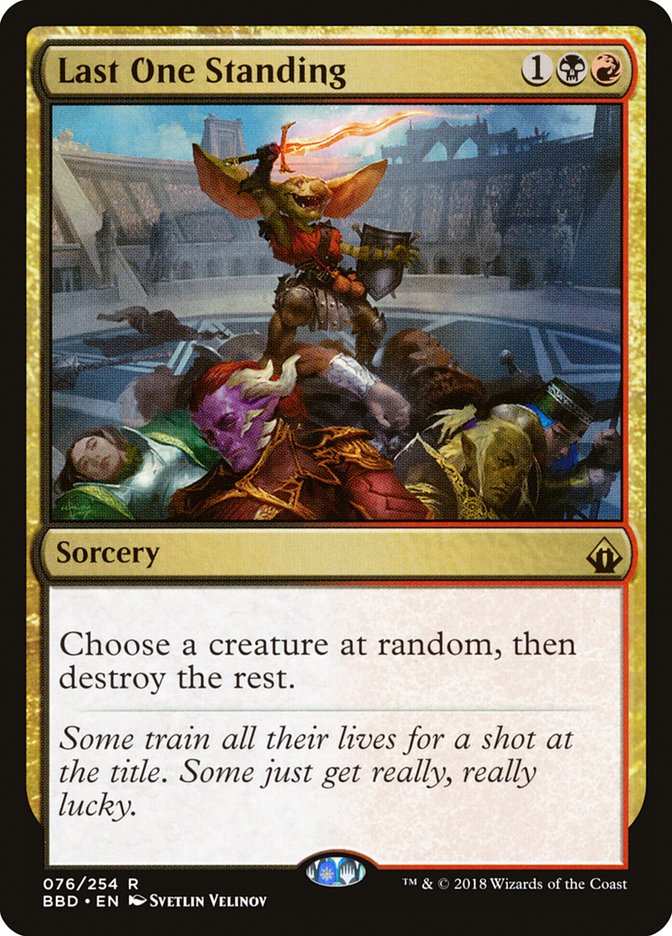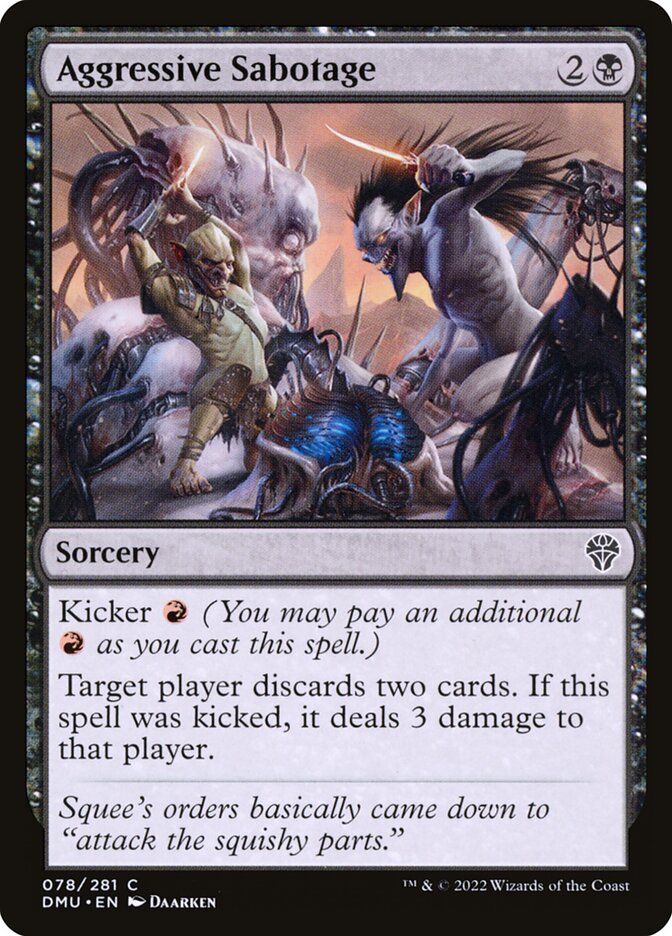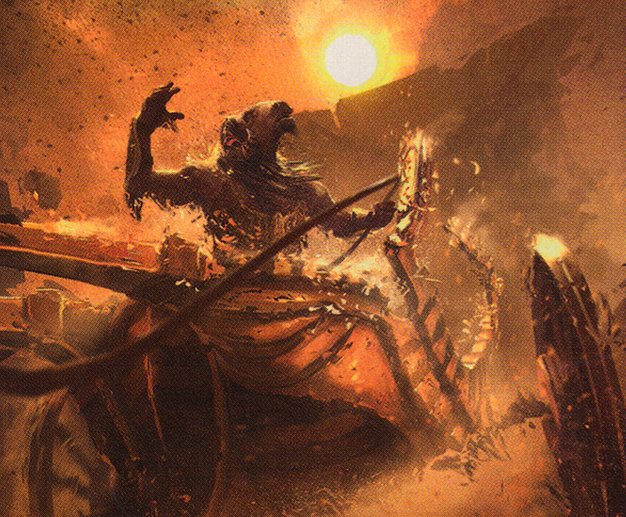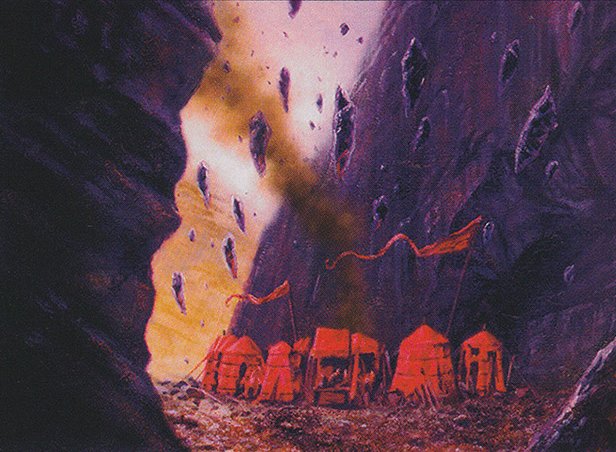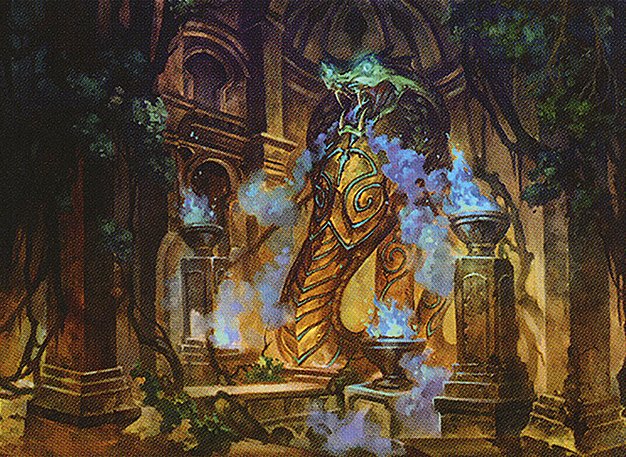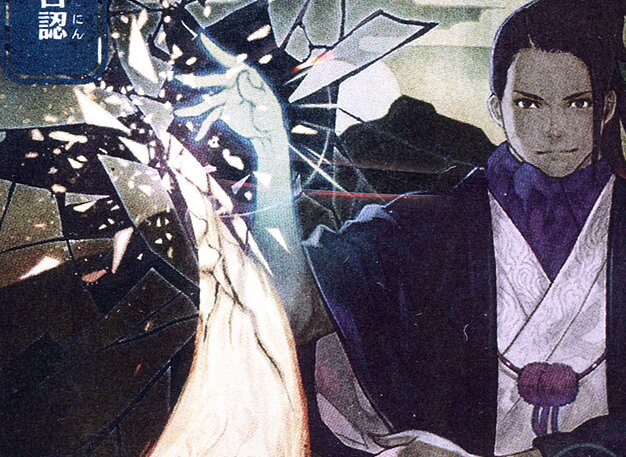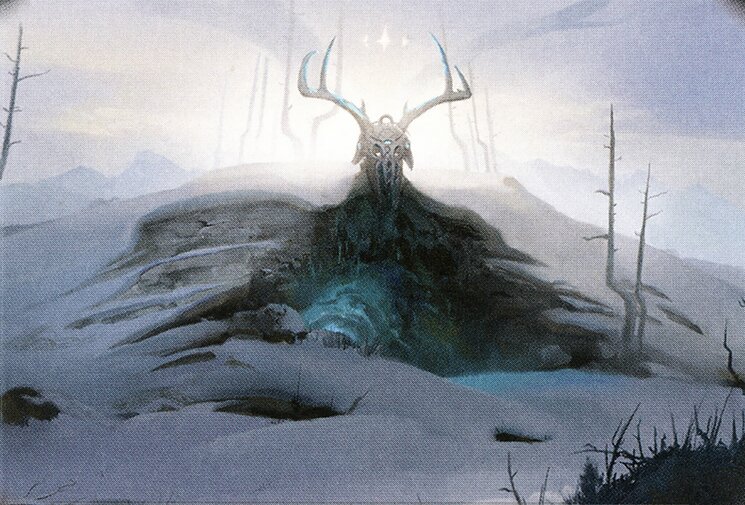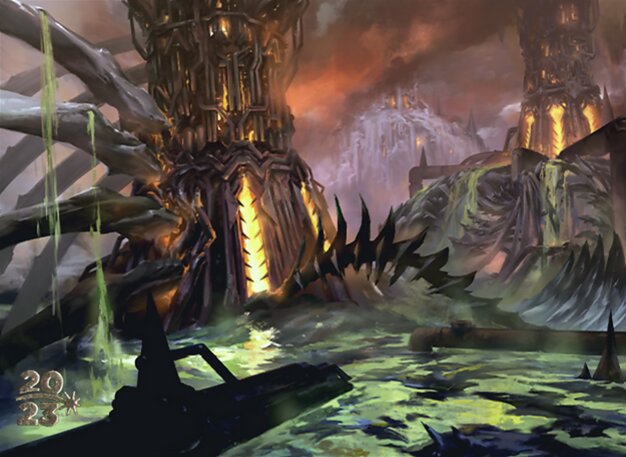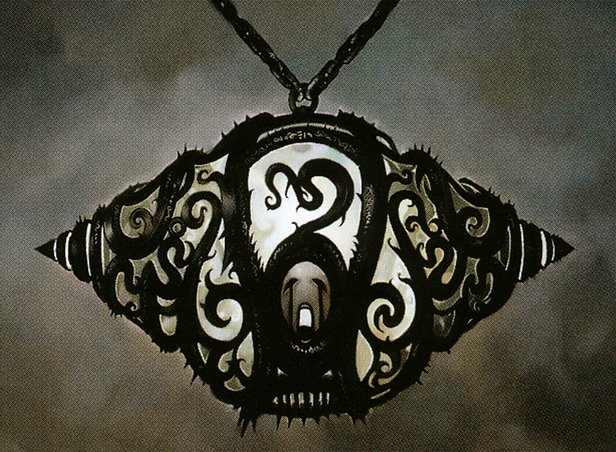Demonic Dread MTG Card
| Mana cost | |
| Converted mana cost | 3 |
| Rarity | Common |
| Type | Sorcery |
| Abilities | Cascade |
| Released | 2009-04-30 |
| Set symbol | |
| Set name | Alara Reborn |
| Set code | ARB |
| Number | 38 |
| Frame | 2003 |
| Layout | normal |
| Border | black |
| Illustred by | Thomas M. Baxa |
Key Takeaways
- Cascade mechanic offers extra spells, enhancing Demonic Dread’s in-game value and versatility.
- Enforces strategic plays, by singling out creatures that become unable to block during critical turns.
- Despite its potential, it requires creature presence and specific mana, which can limit its use.
Text of card
Cascade (When you play this spell, remove cards from the top of your library from the game until you remove a nonland card that costs less. You may play it without paying its mana cost. Put the removed cards on the bottom in a random order.) Target creature can't block this turn.
Card Pros
Card Advantage: When casting Demonic Dread, you target a creature that can’t block this turn; while this doesn’t draw cards, it does allow for strategic planning and can potentially clear a path for an advantageous attack, contributing to a form of tactical card advantage over your opponent.
Resource Acceleration: Although Demonic Dread itself doesn’t directly accelerate resources, it often pairs well with cascade mechanics, which can potentially cascade into lower-cost spells, effectively granting you additional spells without spending extra mana, akin to resource acceleration.
Instant Speed: Demonic Dread is a sorcery; however, the cascade effect it can trigger may hit instant speed spells, offering a degree of flexibility and surprise within your game plan. The immediate effect of rendering a potential blocker ineffective can also create a window of opportunity akin to the tactical use of instant speed spells.
Card Cons
Discard Requirement: One drawback of Demonic Dread is its cascade trigger condition, necessitating that you control a creature to cast other spells with cascade for free. This can be a steep obstacle when the board is clear, or your creature count is low.
Specific Mana Cost: Demonic Dread has a mana cost that is specifically demanding in both black and red mana (BR). This composition may not synergize well with multicolored or mana-flexible decks, potentially limiting its inclusion to only certain archetypes.
Comparatively High Mana Cost: With a casting cost that includes two specific kinds of mana plus one generic, it’s a significant investment in the early game. The effect it brings to the table may not always justify the cost, especially when cheaper alternatives for creature removal or area denial are available within the game.
Reasons to Include in Your Collection
Versatility: Demonic Dread offers players flexibility in cascading into potentially game-changing cards. It can be slotted into various deck builds that aim to exploit this mechanic for powerful plays.
Combo Potential: With its ability to automatically cast spells from your library for no mana cost, Demonic Dread can initiate devastating combos. Players can carefully construct their deck to manipulate powerful spell synergies.
Meta-Relevance: In environments where creature-based strategies prevail, Demonic Dread serves as an essential tool for control, paving the way for unimpeded assaults or disrupting opponents’ board states.
How to beat
Demonic Dread is an impactful card in the realm of cascade spells within Magic the Gathering. As a card that requires a creature target to enact its cascade ability, it demands specific board conditions to be fully utilized. Cascade stands as a powerful mechanic that can sway the game by offering an additional spell cast for free. Demonic Dread also prevents a target creature from blocking which can lead to decisive combat phases.
To effectively counter Demonic Dread, you need to maintain control over your opponent’s creature count. Board wipes and removal spells are key, as they limit the targets for Demonic Dread’s requirement. Additionally, employing counterspells for both the initial spell and the potential cascade outcome is crucial. Cards like Negate or Cancel can intercept either the cascade trigger or the original spell, mitigating the potential value Demonic Dread can generate. Moreover, instant-speed spells that remove a creature in response to Demonic Dread being cast can nullify its effect and the cascade trigger altogether, considering the need for a creature target when it resolves.
In essence, managing the battlefield and having a strategy to intercept cascade triggers is vital in overcoming the challenge posed by Demonic Dread, ensuring that its potential is never fully realized in a match.
Cards like Demonic Dread
Demonic Dread stands out in Magic: The Gathering as an impactful cascade spell, connecting with others like Bloodbraid Elf and Ardent Plea. What sets Demonic Dread apart is its requirement for a target creature to be unable to block this turn. While Bloodbraid Elf also offers the cascade benefit, it brings a body to the battlefield, which Demonic Dread does not. Comparatively, Ardent Plea also cascades, but lacks the targeted tactical advantage Demonic Dread provides.
Cascade enthusiasts might draw parallels to Bituminous Blast, another staple with the ability. Similar to Demonic Dread, Blast affects the board by potentially removing a creature. However, Blast comes with direct damage, an option not present in Demonic Dread’s arsenal. Then there’s Violent Outburst, which shares the cascade trait but leans toward pumping your creatures for a combat edge – a feature where Demonic Dread takes the sideline in favor of control.
Ultimately, Demonic Dread forges its path as a unique blend of cascade and control, offering a different strategic aspect to gameplay. Players value it for the potential to unlock powerful combos and control opponents’ potential blockers, factors that position it uniquely in comparison to its cascade counterparts.
Cards similar to Demonic Dread by color, type and mana cost
Where to buy
If you're looking to purchase Demonic Dread MTG card by a specific set like Alara Reborn, there are several reliable options to consider. One of the primary sources is your local game store, where you can often find booster packs, individual cards, and preconstructed decks from current and some past sets. They often offer the added benefit of a community where you can trade with other players.
For a broader inventory, particularly of older sets, online marketplaces like TCGPlayer, Card Kingdom and Card Market offer extensive selections and allow you to search for cards from specific sets. Larger e-commerce platforms like eBay and Amazon also have listings from various sellers, which can be a good place to look for sealed product and rare finds.
Additionally, Magic’s official site often has a store locator and retailer lists for finding Wizards of the Coast licensed products. Remember to check for authenticity and the condition of the cards when purchasing, especially from individual sellers on larger marketplaces.
Below is a list of some store websites where you can buy the Demonic Dread and other MTG cards:
- eBay
- TCG Player
- Card Kingdom
- Card Market
- Star City Games
- CoolStuffInc
- MTG Mint Card
- Hareruya
- Troll and Toad
- ABU Games
- Card Hoarder Magic Online
- MTGO Traders Magic Online
See Magic products
Legalities
Magic the Gathering formats where Demonic Dread has restrictions
| Format | Legality |
|---|---|
| Commander | Legal |
| Legacy | Legal |
| Paupercommander | Legal |
| Modern | Legal |
| Oathbreaker | Legal |
| Pauper | Legal |
| Vintage | Legal |
| Duel | Legal |
| Predh | Legal |
Rules and information
The reference guide for Magic: The Gathering Demonic Dread card rulings provides official rulings, any errata issued, as well as a record of all the functional modifications that have occurred.
| Date | Text |
|---|---|
| 2021-06-18 | A spell's mana value is determined only by its mana cost. Ignore any alternative costs, additional costs, cost increases, or cost reductions. |
| 2021-06-18 | Cascade triggers when you cast the spell, meaning that it resolves before that spell. If you end up casting the exiled card, it will go on the stack above the spell with cascade. |
| 2021-06-18 | Due to a recent rules change to cascade, not only do you stop exiling cards if you exile a nonland card with lesser mana value than the spell with cascade, but the resulting spell you cast must also have lesser mana value. Previously, in cases where a card's mana value differed from the resulting spell, such as with some modal double-faced cards or cards with an Adventure, you could cast a spell with a higher mana value than the exiled card. |
| 2021-06-18 | If a spell with cascade is countered, the cascade ability will still resolve normally. |
| 2021-06-18 | If the card has in its mana cost, you must choose 0 as the value of X when casting it without paying its mana cost. |
| 2021-06-18 | If you cast a card “without paying its mana cost,” you can't choose to cast it for any alternative costs. You can, however, pay additional costs. If the card has any mandatory additional costs, you must pay those to cast the card. |
| 2021-06-18 | The mana value of a split card is determined by the combined mana cost of its two halves. If cascade allows you to cast a split card, you may cast either half but not both halves. |
| 2021-06-18 | When the cascade ability resolves, you must exile cards. The only optional part of the ability is whether or not you cast the last card exiled. |
| 2021-06-18 | You exile the cards face up. All players will be able to see them. |
